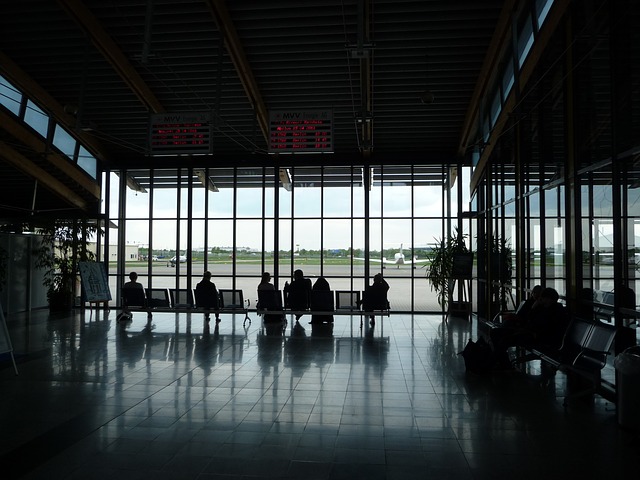
Airlines shirk responsibility in compensation claims passengers
Tuesday, January 22, 2013

London 23 January 2013 -- Airlines continue to evade European laws for compensation of victimised air passengers on a large scale. One of the ways they try to do this is by blaming delays on ‘extraordinary circumstances’ such as unexpected technical difficulties. Some airlines also still disagree with the principle that air passengers are entitled to be compensated for the time they lose as a result of delays. These are the results of research done by claim agency Flight-delayed.co.uk of claims filed by 10,000 passengers from all across Europe.
As defined by European legislation, air passengers are entitled to compensation if their flight is delayed by three hours or more. This was confirmed yet again by the European Court of Justice in October of 2012, three months ago this week. Nevertheless, victimised passengers continue to face many obstacles in successfully filing a claim for compensation. Statistics collected by claim website Flight-delayed.co.uk from compensation claims filed by 10,000 passengers from across Europe between July and December of 2012 also demonstrate that. ‘Technical difficulties’ is the argument most used to deny compensation. 40 percent of all cases is denied for this type of reason. The real cause of a delay is almost always kept under wraps by the airline. Raymond Veldkamp, spokesperson for Flight-delayed.co.uk: “The European Court ruled that technical defects are part of an airline’s operational responsibilities and do not exempt them from their obligation to compensate passengers in the case of a delay unless the defect could not have reasonably been prevented or predicted. As a result, airlines use this legislative loophole to their advantage by blaming every delay on the catch-all excuse of ‘technical defects’.
Airlines are also aware of the public’s fear of crashes, meaning they need only mention a potential defect to lull their customers into waiting for hours on end.” Of course, passengers never find out the real reason for the delay, which may not even be one of safety but of economics instead.For years, the main excuse for not paying compensation claims to victimised passengers was that there was no legal ground to do so. Most airlines have stopped using this argument after an extended legal debate between the airlines and the European Court. Veldkamp: “For the most part, airlines finally realise that they have lost this battle. As a result, some airlines do compensate more now than they did before, while others stopped responding at all after October 23rd.” Another tactic airlines are often said to employ now is to complicate the process of filing for compensation as much as they can.
Monarch Airlines, for example, have drafted their own complaint form, and only accepts compensation requests if they are filed by using this form. As a result, many customers have had their letters sent back to them unanswered, forcing them to send the exact same information twice, but in a different format. “The airlines know consumers are easily scared off by legal lingo, thick dossiers and lawsuits, and use these things to intimidate the passenger and discourage them from seeing their claim through ‘till the end.”Of the 10,000 passengers whose data were compared for this research, only 846 received compensation from the airline directly after their first request. Of all passengers that filed a claim after October 23rd, only 24 percent received a response from the airline within the legally set timeframe of 6 weeks. Before the 23rd, this percentage was 45. The largest shift between the period before and after October 23rd can be perceived in claims filed with British Airways.
Where previously, BA responded within 6 weeks in 60 percent of all cases, this number dropped dramatically to 17 in the period after October 23rd. Veldkamp: “The numbers speak for themselves: airlines ignore the legally set response time or fail to respond altogether. If they do respond, they almost always reject the claim straight away. The reason that is given for rejecting claims varies greatly. What’s also remarkable is that there are huge differences between the results of different airlines. What this means is that the chances of successfully claiming for compensation are highly dependent on which airline you’re facing. This conclusion by itself is unacceptable.”With an estimated number of only 7 percent of consumers being aware of their rights as air passengers, the key to forcing airlines to fulfil their responsibilities may be in reaching the masses.
When asked for a response to the European ruling last October, MEP for South East England Catherine Bearder stated: “Passengers must be better informed about their rights, starting when purchasing their tickets [...] but also in departure and arrival halls as well. It is unacceptable that many people are not aware of already existing EU rights when facing not just delays but cancellations and luggage problems during their trips as well.”
Written by: Flight-Delayed



Did you like this content ?
Thanks you made our day!
Therapy is expensive - help us be better!
Well received, thanks!